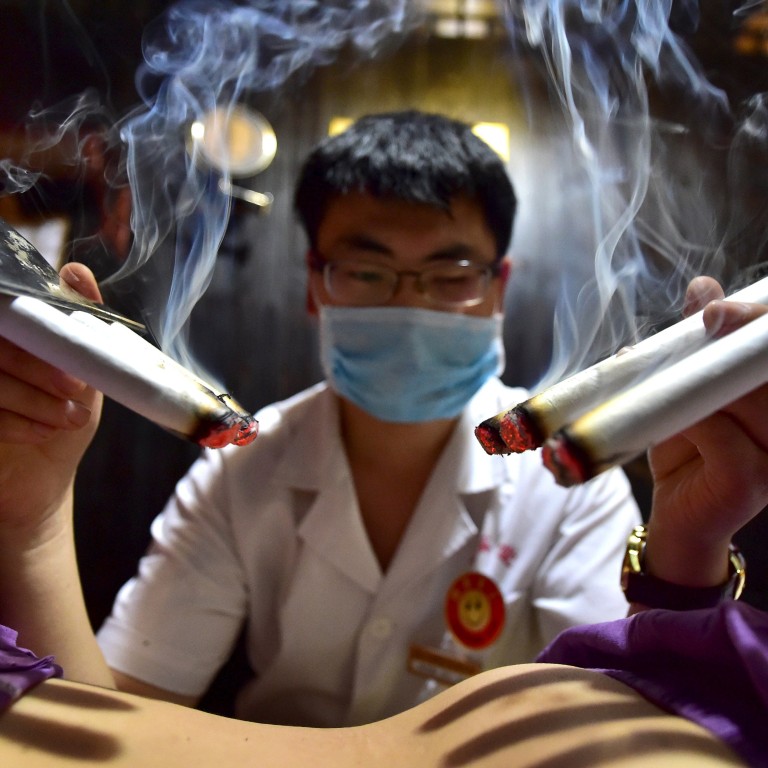
Chinese patients to get second opinion from US doctors online after Shenzhen expands health platform as medical tourism takes off
Chinese patients will be able to get a second opinion from US medical organisations later this year after a new service is added to an online medical platform in China, which is moving to embrace smart technology and digital-first entrepreneurialism.
The project, the first of its kind in mainland China, is due to feature on the Citizen Health Platform of Shenzhen, an app run by the local government of this former boomtown in southern Guangdong province known for its pioneering adoption of economic reforms several decades ago.
READ MORE: Mobile medicine: app eDrug to remind Hong Kong patients not to miss their medication
The news was made public this week by Hong Kong-based Good Health System Group and the Hong Kong Institute of Cell Molecular Medicine (ICMM), which jointly operate the platform.
“It’s a cooperation platform facilitated by the international experience of Hong Kong,” said Zheng Wenling, one of ICMM’s founders.
“We aim to accelerate the collaboration between China and the West while helping Chinese patients benefit from the latest medical technology.”
Patients will be able to upload their medical records and examination reports and have them translated into English by doctors in Hong Kong or Singapore.
They will receive a diagnostic report issued by international teaching hospitals or institutions in the United States within two weeks, the operators said.
If necessary, patients will also get help organising biopsies overseas.
READ MORE: Internet giant Tencent leads US$90m funding round in healthcare app Practo as Chinese firms target India
So far, four American medical institutions – United Healthcare, Mayo Clinic, UCSF Medical Center and Memorial Sloan Kettering Cancer Centre – will collaborate with ICMM for the project.
More are expected to sign up in the near future, said Dr. Jiang Zhong Yuan, founder of ICMM.
The development comes as relations between patients and doctors in China have become increasingly tense in recent years. Although medical services are cheap, patients must often wait long hours for several minutes of a general practitioner’s attention.
Reports have also been growing of patients and relatives blaming medical staff if their treatments fail. Some confrontations have erupted into violence, with doctors fearing for their safety.
Mistrust of local doctors is also growing amid reports of generous rebates from pharmaceutical companies for prescribing their drug treatments. The country is already well known to overprescribe antibiotics, for example, which builds up resistance against them and ultimately renders the drugs ineffective.
READ MORE: The hospital doctor turned entrepreneur bringing the internet to China’s medical services
“In Hong Kong and overseas, many people seek a second opinion to confirm a diagnosis of cancer or other critical illness.” Jiang said.
Jiang said the platform would likely encourage patients with more disposable income to seek follow-up treatment overseas, which could reduce the workload for doctors at busy hospitals.
Medical tourism is already booming among wealthy Chinese. Despite a lack of official statistics, the trend has spawned a cottage industry in the country with hundreds agencies depending for their bread on butter on demand for middlemen to connect them with leading specialists or institutes overseas.
Massachusetts General Hospital in Boston saw about 100 Chinese patients last year, up 10-fold from 2011, the Boston Globe reported.
But senior staff from ICMM and the Chinese Academy of Sciences have advocated for the launch of a new body called the China Research Academy of Precision Medicine dedicated to specialist medical services, which they say is sorely needed.
They say this could act as a bridge between hospitals in the US and the two Chinese cities of Guangzhou, in southern Guangdong, and Beijing. Such partner cities could collaborate in areas like big data and specialist medicine.

